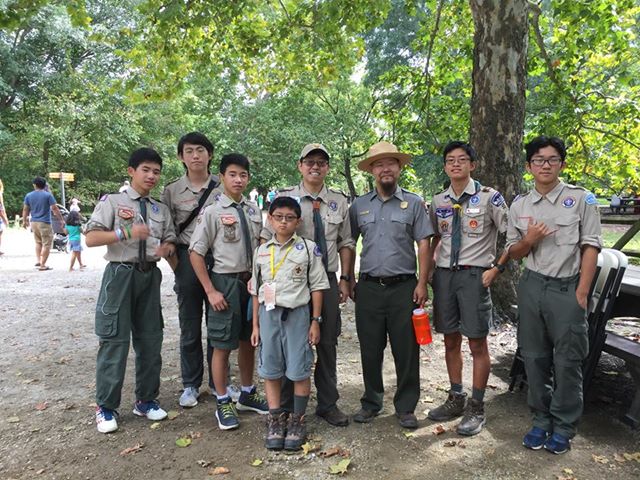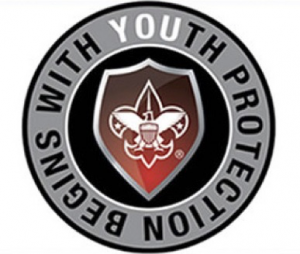 In case you haven’t heard, Youth Protection Training is a requirement for all Scouting leaders.
In case you haven’t heard, Youth Protection Training is a requirement for all Scouting leaders.
No new adult leaders can be registered, and no current adult leaders can be renewed, unless they have a current Youth Protection Training certificate.
Earlier last year an updated version of YPT was released. This new version includes more personal stories to better help leaders recognize the signs of abuse, and was designed so that one course works across all Scouting programs. The enhanced and updated content also ensures leaders comply with all current state and local legal requirements.
Additionally, starting this summer, adults accompanying units on activities for 72 hours or more must be registered and take YPT. The 72 hours need not be consecutive. For most units, this applies mainly to summer camp. If your unit desires to set a stricter policy (e.g. ALL adults going to camp must be registered and have YPT), that is certainly permitted.
All registered leaders were required to complete the updated training by October 1. This reflects BSA’s commitment to the safety of all youth. If you have not taken the new training, please do so ASAP to avoid the rush at recharter time.
Don’t put your unit’s recharter at risk: Make sure your YPT training is completed! To learn more, discover additional resources, or take the training now, please visit:

 One of the easiest, most effective ways you can support National Capital Area Council is through workplace giving, an employer-sponsored program that empowers you to support your favorite charities through tax-deductible donations deducted directly from your paycheck.
One of the easiest, most effective ways you can support National Capital Area Council is through workplace giving, an employer-sponsored program that empowers you to support your favorite charities through tax-deductible donations deducted directly from your paycheck. 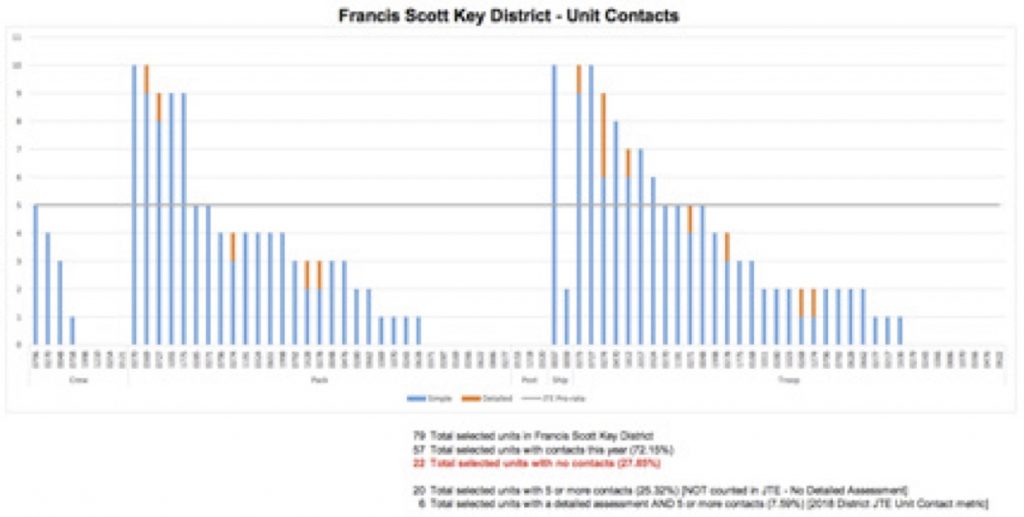
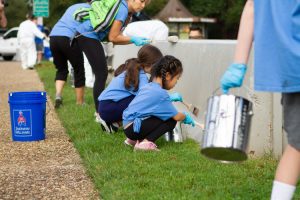 On September 22nd 400 Scouters were welcomed by the Trust for the National Mall as they converged to volunteer their time and effort to a variety of Mall-related service projects. The day also marked the National Environmental Education Foundation’s celebration of the 25th Annual National Public Lands Day. Known as the largest single-day volunteer effort, this year’s theme of resilience and restoration was inspired by a pressing need to address the effects of a spate of natural disasters and extreme weather that have taken a terrible toll on both public lands and those who depend upon them.
On September 22nd 400 Scouters were welcomed by the Trust for the National Mall as they converged to volunteer their time and effort to a variety of Mall-related service projects. The day also marked the National Environmental Education Foundation’s celebration of the 25th Annual National Public Lands Day. Known as the largest single-day volunteer effort, this year’s theme of resilience and restoration was inspired by a pressing need to address the effects of a spate of natural disasters and extreme weather that have taken a terrible toll on both public lands and those who depend upon them.  With over 35 million visits and 3,000 permitted events annually, the National Mall is the most visited National Park in the country. This level of use in “America’s Front Yard” puts an enormous strain on available resources, so volunteer efforts make a massive difference; a difference that is estimated to save the National Park Service nearly $1 million in annual labor costs. Scouts engaged in river clean up, painting
With over 35 million visits and 3,000 permitted events annually, the National Mall is the most visited National Park in the country. This level of use in “America’s Front Yard” puts an enormous strain on available resources, so volunteer efforts make a massive difference; a difference that is estimated to save the National Park Service nearly $1 million in annual labor costs. Scouts engaged in river clean up, painting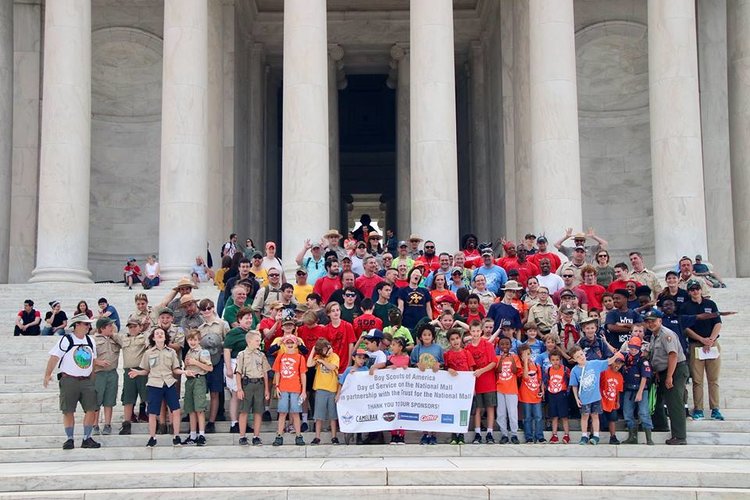
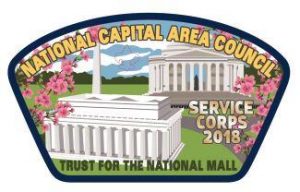
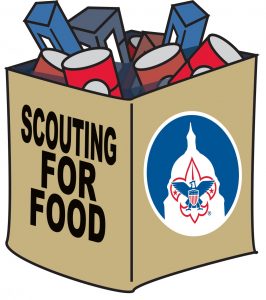 NCAC will be kicking off the 31st annual Scouting for Food on November 3. Scouts will distribute door tags to homes throughout our Council, then return on November 10 to collect non-perishable food items that will nourish the area’s hungry.
NCAC will be kicking off the 31st annual Scouting for Food on November 3. Scouts will distribute door tags to homes throughout our Council, then return on November 10 to collect non-perishable food items that will nourish the area’s hungry. 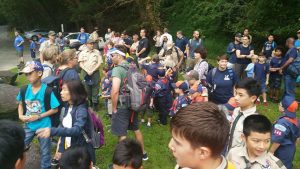 On Sunday, September 23, over 130 Cub Scouts from across NCAC came together at Great Falls Park in Virginia to celebrate 100 years of partnership between the National Park Service and Boy Scouts of America. Cub Scouts got up close and personal with a Great Horned Owl, Screech Owl, Barred Owl, Red Shouldered Hawk, and Barn Owl. They also were able to touch corn snakes, and observe other snakes feeding. Most Scouts also stretched their legs as they took part in hikes ranging from one to three miles along the river.
On Sunday, September 23, over 130 Cub Scouts from across NCAC came together at Great Falls Park in Virginia to celebrate 100 years of partnership between the National Park Service and Boy Scouts of America. Cub Scouts got up close and personal with a Great Horned Owl, Screech Owl, Barred Owl, Red Shouldered Hawk, and Barn Owl. They also were able to touch corn snakes, and observe other snakes feeding. Most Scouts also stretched their legs as they took part in hikes ranging from one to three miles along the river. 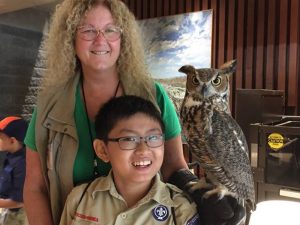 Turner Au has been giving back ever since, creating opportunities for Scouts to explore NPS by promoting Eagle Scout projects at Great Falls, providing merit badge programs, offering rank requirement opportunities, and arranging other Scouting activities in the park, such as Cub Scout Day.
Turner Au has been giving back ever since, creating opportunities for Scouts to explore NPS by promoting Eagle Scout projects at Great Falls, providing merit badge programs, offering rank requirement opportunities, and arranging other Scouting activities in the park, such as Cub Scout Day. 